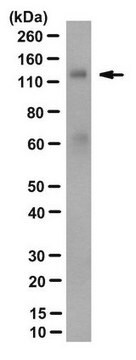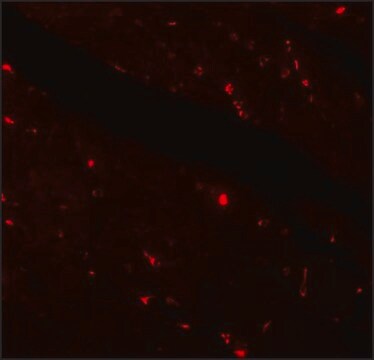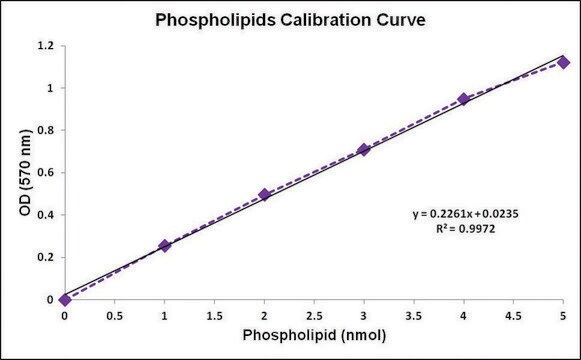MABN1807
Anti-Klotho Antibody, clone KL-234
ascites fluid, clone KL-234, from rat
Sinónimos:
EC: 3.2.1.31, KL
About This Item
Productos recomendados
origen biológico
rat
forma del anticuerpo
ascites fluid
tipo de anticuerpo
primary antibodies
clon
KL-234, monoclonal
reactividad de especies
mouse, human
envase
antibody small pack of 25 μL
técnicas
immunocytochemistry: suitable
immunohistochemistry: suitable
immunoprecipitation (IP): suitable
western blot: suitable
isotipo
IgG2aκ
Nº de acceso NCBI
Nº de acceso UniProt
modificación del objetivo postraduccional
unmodified
Información sobre el gen
human ... KL(9365)
Descripción general
Especificidad
Inmunógeno
Aplicación
Neuroscience
Immunohistochemistry Analysis: A representative lot detected Klotho in Immunohistochemistry applications (Maltare, A., et. al. (2014). Monoclon Atib Immunodiagn Immunother. 33(6):420-7).
Immunoprecipitation Analysis: A representative lot immunoprecipitated Klotho in Immunoprecipitation applications (Maltare, A., et. al. (2014). Monoclon Atib Immunodiagn Immunother. 33(6):420-7).
Western Blotting Analysis: A representative lot detected Klotho in Western Blotting applications (Maltare, A., et. al. (2014). Monoclon Atib Immunodiagn Immunother. 33(6):420-7).
Immunocytochemistry Analysis: A representative lot detected Klotho in Immunocytochemistry applications (Maltare, A., et. al. (2014). Monoclon Atib Immunodiagn Immunother. 33(6):420-7).
Calidad
Western Blotting Analysis: A 1:500 dilution of this antibody detected Klotho in 10 µg of human kidney tissue lysates.
Descripción de destino
Forma física
Almacenamiento y estabilidad
Otras notas
Cláusula de descargo de responsabilidad
¿No encuentra el producto adecuado?
Pruebe nuestro Herramienta de selección de productos.
Código de clase de almacenamiento
10 - Combustible liquids
Clase de riesgo para el agua (WGK)
WGK 1
Certificados de análisis (COA)
Busque Certificados de análisis (COA) introduciendo el número de lote del producto. Los números de lote se encuentran en la etiqueta del producto después de las palabras «Lot» o «Batch»
¿Ya tiene este producto?
Encuentre la documentación para los productos que ha comprado recientemente en la Biblioteca de documentos.
Nuestro equipo de científicos tiene experiencia en todas las áreas de investigación: Ciencias de la vida, Ciencia de los materiales, Síntesis química, Cromatografía, Analítica y muchas otras.
Póngase en contacto con el Servicio técnico








